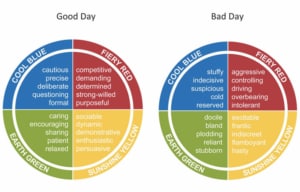Why are journalists so rude to PR people?
This weekend I read this on LinkedIn.
“Working in PR is tough. I’ve received hefty abuse from some journalists, including death threats. I took a PR role because I struggled financially as a freelance journalist. …I always see tweets criticising PRs. Granted, there are some rogue PRs out there. But I think some people forget we’re only trying to do a job – ultimately to pay the bills and put food on the table. Let’s be kinder to each other.”
I don’t know the writer, and his industry and role were not clear. The reference to death threats was unexplained and is thankfully rare, at least in the UK. However, some journalists do behave quite badly.
And I know there are PR professionals all over the country who are scared to answer the phone to journalists!

That may be hard to imagine but it’s true. The Media Coach has, on several occasions, been asked to work with such teams and explain how journalists think and why they can be so challenging.
I can only imagine that as a new graduate, in your first PR job, keen to get it right, with no experience of the rough and tumble of a newsroom, it must be highly disconcerting to have journalists speak to you with disrespect or even rudeness.
So, to all newbie PRs, this is my guide to how journalists think, and how to deal with them.
Professional Juxtaposition
First, let’s remember the context: given the two professional roles, it would be impossible to avoid tension. Journalists both need PR people but sometimes, despise them. And vice versa.
Journalists want seemingly simple information and access to senior people, the right people on the right day, for a story. Journalists believe their job is to find the facts, hold people to account, to shine the harsh light of truth into the murky corners of spin. And to do all that today.
PRs are sensible gate-keepers and often refuse to provide information or deny access, judging the information is not so simple and any interview comes with some risks, and might not be in the best interests of an organisation. And besides, they can’t get access to the right senior leader until next week. In this case, the PR has the power, and they use it to thwart the journalists.
And then a week, a month, or a year later the boot is on the other foot.
PRs are tasked with winning coverage for a positive story. Suddenly, they become salespeople.
Most journalists, who are busy professionals like everyone else, are fighting off press releases, emails, phone calls, or Twitter DMs, from PRs. The PRs are often peddling a half-baked story to the wrong person at the wrong time.
In this case, the journalists have the power.
So, we have two groups of people that need each other in different ways at different times and both have to be firm, steadfast and sometimes robust in holding the other at bay.
Of course, there are some occasions when PRs and journalists want the same thing, but this happy overlap of the Venn diagram of life is rather a thin slice.
Culture Clash
Mostly, we have two types of professionals tasked with ‘managing’ each other. Each living in a very different professional culture. PRs are typically in large organisations with lots of rules and clear hierarchies, not a lot of shouting.
Journalists work in newsrooms which can be very intense places to work. Here are some of the reasons why.
- Tight deadlines. Most journalists’ deadlines are a few hours in the future, sometimes in broadcast it is minutes or seconds away, and the pressure can be intense. Journalists who miss deadlines do not stay in work for long. This makes for short conversations and abrupt responses.
- Journalism is highly competitive. It’s not just one team against another team. As a journalist, you are competing with your colleagues for the best stories, top billing, the front page.
- Journalists need to think differently. The job is to cut through the misleading spin of political and corporate life. Their holy mission is to think ‘if this is costing £3m, who is paying?’ ‘If 85% are successful what is happening to the other 15% and how many people is that?’ This can mean if you walk in and say ‘Good Morning’ you might find someone disagreeing with you!
- Related to the point above, as a journalist, you must not be taken in by charm, or money, or power. Your job is not to be influenced by these things.
- Journalists are lied to. If you are a journalist, people lie to you all the time. Clearly, you end up assuming people are probably lying, even when they are not.
- You have to hustle: to get to the bottom of stuff, to get interviewees on camera, to find the person who knows, you have to hustle. Newsnight would never get on air and The Times would never get published if the journalists did not hustle. Journalists push people when others would give up.
- And finally, as a journalist you are rewarded for getting the story, writing the scoop, getting the interview. No one, but no one cares (in your newsroom) that you upset the PR woman or were rude to the receptionist, in order to get what the story needed.
To take an extreme example of this, the BBC’s World Affairs Editor, John Simpson and his cameraman upset almost the entire Muslim world by posing as women – disguised in burqas – while being smuggled into Afghanistan in 2001. In his book ‘News from No Man’s Land’ Simpson talks about discussing the plan and weighing the future cost of such upset. He was totally aware that there would be a huge outcry, but he decided to do it anyway, to get the story. Simpson narrowly escaped having a worldwide ‘fatwa’ issued against him.
I realised a long time ago that journalists are good company, their take on life is refreshing but the profession rewards bad behavior. Of course, not all journalists succumb to rudeness, disrespect or aggression. Some remain courteous and reasonable whatever the pressure, whatever the story. But perhaps not so many.
And it should be noted that there are many PR-journalist relationships that are cordial, even friendly. The two parties have mutual respect, perhaps have some good history together or just hit it off. An experienced PR person will have built trust along with their media list, they will have dropped an exclusive, or bought lunch, maybe even given some useful background in the past. Maybe they’ve just been straight. These relationships don’t need a blog.
How to Deal with Journalists
This is written for those who find it challenging to handle the Fourth Estate. So, assuming you are a polite, diligent PR person how should you deal with journalists?
- First understand, if they do sound a bit aggressive, it is not personal.
- Second, accept that journalists live by rather different rules than you do. You don’t have to approve, but just as you would accept a tantrum from a child, or swearing from a drunk, understand journalists tend to be very direct, very RED if you are familiar with the Insights Discovery psychometric testing tool.
- Third, you are more likely to get the respect of journalists if you are direct. You don’t need to be aggressive (even if they are). Just be happy to say ‘Sorry I am not able to answer that question.’ ‘We are not putting anyone up for interview’, etc. Directness shows strength and builds trust. [Just remember not to be quotable as you do this. If you say ‘wild horses would not drag Mr X to a media interview in the middle of all this’ – you may find the quote all over Twitter and on the front page!]
- Don’t waste journalists’ time. Make sure you have your story straight before you pitch. Pitch in a very few words and explain what you are offering them i.e. data, an interview, a quote. Don’t worry about being nice. Worry about being clear and succinct.
- Call or email back when you said you would.
- Don’t ring just before a deadline.
- Finally, always think about helping a journalist add value to their viewers and readers. Journalists will always respond to a good story. They would never – in my experience – say I am not running or writing that story because I don’t like the PR.
For journalists, it is always all about the story.
Final Irony
And as a footnote, there is a final irony to all this. Many of those grumpy self-obsessed journalists may one day decide to become – guess what – a PR person! What is more many will try and fail because it is a very different job. I will leave the last thought with Neil Henderson, once a television journalist and now a senior PR. He responded, on LinkedIn, to this post’s opening quote:
‘I could paper the walls of my entire house and my neighbours with CVs from journalists who want to work in PR. Some of them were truly awful to me or my colleagues. When I first moved into PR/Communications from national television news in the mid 2000s I quickly realised that a lot of the PR people much derided by journalists, are more intelligent and better writers.’
Images:
iStock
Insight Discovery
- Media Savvy Operators Know How to Place a Quote - May 21, 2024
- The Magic of Performance - May 14, 2024
- Our Top Tips: - May 8, 2024






Amendment to your sixth point: in 24 hour news operations it’s always just before a deadline. A good PR will ask: “is this a good time to talk?”, showing some EQ towards the journalist. A general point: broadcast news (Radio and TV) are under regulatory control, which includes clear separation between news and advertising. A personal example: on Sky’s business desk I took a call from a PR, who I judged to be fairly new in the job. She went into her prepared script about how the launch of this new product (it was Branston Baked Beans) would make a great business story. I was then offered “preview footage” of the advert that was to be launched 2 days later. I asked whether the ad was scheduled to run on any of the Sky channels.(Yes, ok, setting her up for a fall either answer). The answer was no. So I said: “You know what, we don’t do free adverts on Sky News”. and hung up. Understand the ground rules please, PR folk.
But the boot was firmly on the other foot in a year long argument with the Treasury when Gordon Brown was chancellor. We regularly reported the rapidly increasing government borrowing (circa 2004/5) in cash terms. Treasury PR men (they were all men then) wanted us to report it as a percentage of GDP. We went some way , reporting both numbers. Treasury came back and said please stop using the cash figure as it neared the £trillion mark. We demurred. Eventually they said: “If you don’t stop quoting that cash figure, we’ll have to talk to Rupert (Murdoch)”. We demurred. 3 days later I picked up the phone. The instantly recognisable voice said: “You’ve been upsetting the Treasury. Carry on.” and hung up.